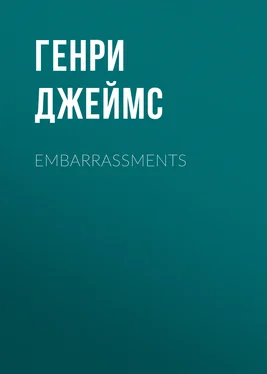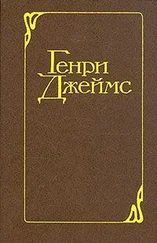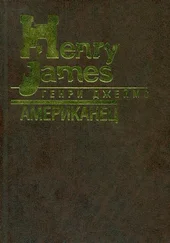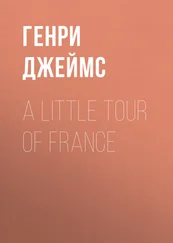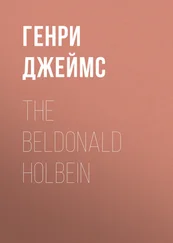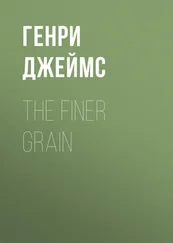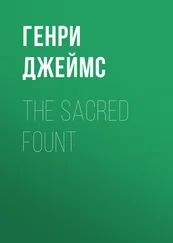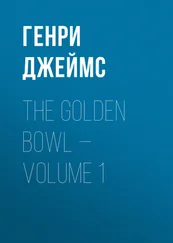Генри Джеймс - Embarrassments
Здесь есть возможность читать онлайн «Генри Джеймс - Embarrassments» — ознакомительный отрывок электронной книги совершенно бесплатно, а после прочтения отрывка купить полную версию. В некоторых случаях можно слушать аудио, скачать через торрент в формате fb2 и присутствует краткое содержание. Жанр: foreign_antique, foreign_prose, foreign_sf, на английском языке. Описание произведения, (предисловие) а так же отзывы посетителей доступны на портале библиотеки ЛибКат.
- Название:Embarrassments
- Автор:
- Жанр:
- Год:неизвестен
- ISBN:нет данных
- Рейтинг книги:4 / 5. Голосов: 1
-
Избранное:Добавить в избранное
- Отзывы:
-
Ваша оценка:
- 80
- 1
- 2
- 3
- 4
- 5
Embarrassments: краткое содержание, описание и аннотация
Предлагаем к чтению аннотацию, описание, краткое содержание или предисловие (зависит от того, что написал сам автор книги «Embarrassments»). Если вы не нашли необходимую информацию о книге — напишите в комментариях, мы постараемся отыскать её.
Embarrassments — читать онлайн ознакомительный отрывок
Ниже представлен текст книги, разбитый по страницам. Система сохранения места последней прочитанной страницы, позволяет с удобством читать онлайн бесплатно книгу «Embarrassments», без необходимости каждый раз заново искать на чём Вы остановились. Поставьте закладку, и сможете в любой момент перейти на страницу, на которой закончили чтение.
Интервал:
Закладка:
My words however were not absolutely the same—I put something instead of “angel”; and in the sequel my epithet seemed the more apt, for when eventually we heard from Corvick it was merely, it was thoroughly to be tantalised. He was magnificent in his triumph, he described his discovery as stupendous; but his ecstasy only obscured it—there were to be no particulars till he should have submitted his conception to the supreme authority. He had thrown up his commission, he had thrown up his book, he had thrown up everything but the instant need to hurry to Rapallo, on the Genoese shore, where Vereker was making a stay. I wrote him a letter which was to await him at Aden—I besought him to relieve my suspense. That he found my letter was indicated by a telegram which, reaching me after weary days and without my having received an answer to my laconic dispatch at Bombay, was evidently intended as a reply to both communications. Those few words were in familiar French, the French of the day, which Corvick often made use of to show he wasn’t a prig. It had for some persons the opposite effect, but his message may fairly be paraphrased. “Have patience; I want to see, as it breaks on you, the face you’ll make!” “ Tellement envie de voir ta tête! ”—that was what I had to sit down with. I can certainly not be said to have sat down, for I seem to remember myself at this time as rushing constantly between the little house in Chelsea and my own. Our impatience, Gwendolen’s and mine, was equal, but I kept hoping her light would be greater. We all spent during this episode, for people of our means, a great deal of money in telegrams, and I counted on the receipt of news from Rapallo immediately after the junction of the discoverer with the discovered. The interval seemed an age, but late one day I heard a hansom rattle up to my door with a crash engendered by a hint of liberality. I lived with my heart in my mouth and I bounded to the window—a movement which gave me a view of a young lady erect on the footboard of the vehicle and eagerly looking up at my house. At sight of me she flourished a paper with a movement that brought me straight down, the movement with which, in melodramas, handkerchiefs and reprieves are flourished at the foot of the scaffold.
“Just seen Vereker—not a note wrong. Pressed me to bosom—keeps me a month.” So much I read on her paper while the cabby dropped a grin from his perch. In my excitement I paid him profusely and in hers she suffered it; then as he drove away we started to walk about and talk. We had talked, ‘heaven knows, enough before, but this was a wondrous lift. We pictured the whole scene at Rapallo, where he would have written, mentioning my name, for permission to call; that is I pictured it, having more material than my companion, whom I felt hang on my lips as we stopped on purpose before shop-windows we didn’t look into. About one thing we were clear: if he was staying on for fuller communication we should at least have a letter from him that would help us through the dregs of delay. We understood his staying on, and yet each of us saw, I think, that the other hated it. The letter we were clear about arrived; it was for Gwendolen, and I called upon her in time to save her the trouble of bringing it to me. She didn’t read it out, as was natural enough; but she repeated to me what it chiefly embodied. This consisted of the remarkable statement that he would tell her when they were married exactly what she wanted to know.
“Only when we’re married—not before,” she explained. “It’s tantamount to saying—isn’t it?—that I must marry him straight off!” She smiled at me while I flushed with disappointment, a vision of fresh delay that made me at first unconscious of my surprise. It seemed more than a hint that on me as well he would impose some tiresome condition. Suddenly, while she reported several more things from his letter, I remembered what he had told me before going away. He found Mr. Vereker deliriously interesting and his own possession of the secret a kind of intoxication. The buried treasure was all gold and gems. Now that it was there it seemed to grow and grow before him; it was in all time, in all tongues, one of the most wonderful flowers of art. Nothing, above all, when once one was face to face with it, had been more consummately done. When once it came out it came out, was there with a splendour that made you ashamed; and there had not been, save in the bottomless vulgarity of the age, with every one tasteless and tainted, every sense stopped, the smallest reason why it should have been overlooked. It was immense, but it was simple—it was simple, but it was immense, and the final knowledge of it was an experience quite apart. He intimated that the charm of such an experience, the desire to drain it, in its freshness, to the last drop, was what kept him there close to the source. Gwendolen, frankly radiant as she tossed me these fragments, showed the elation of a prospect more assured than my own. That brought me back to the question of her marriage, prompted me to ask her if what she meant by what she had just surprised me with was that she was under an engagement.
“Of course I am!” she answered. “Didn’t you know it?” She appeared astonished; but I was still more so, for Corvick had told me the exact contrary. I didn’t mention this, however; I only reminded her that I had not been to that degree in her confidence, or even in Corvick’s, and that moreover I was not in ignorance of her mother’s interdict. At bottom I was troubled by the disparity of the two assertions; but after a moment I felt that Corvick’s was the one I least doubted. This simply reduced me to asking myself if the girl had on the spot improvised an engagement—vamped up an old one or dashed off a new—in order to arrive at the satisfaction she desired. I reflected that she had resources of which I was destitute; but she made her case slightly more intelligible by rejoining presently: “What the state of things has been is that we felt of course bound to do nothing in mamma’s lifetime.”
“But now you think you’ll just dispense with your mother’s consent?”
“Ah, it may not come to that!” I wondered what it might come to, and she went on: “Poor dear, she may swallow the dose. In fact, you know,” she added with a laugh, “she really must! ”—a proposition of which, on behalf of every one concerned, I fully acknowledged the force.
VIII
Nothing more annoying had ever happened to me than to become aware before Corvick’s arrival in England that I should not be there to put him through. I found myself abruptly called to Germany by the alarming illness of my younger brother, who, against my advice, had gone to Munich to study, at the feet indeed of a great master, the art of portraiture in oils. The near relative who made him an allowance had threatened to withdraw it if he should, under specious pretexts, turn for superior truth to Paris—Paris being somehow, for a Cheltenham aunt, the school of evil, the abyss. I deplored this prejudice at the time, and the deep injury of it was now visible—first in the fact that it had not saved the poor boy, who was clever, frail and foolish, from congestion of the lungs, and second in the greater remoteness from London to which the event condemned me. I am afraid that what was uppermost in my mind during several anxious weeks was the sense that if we had only been in Paris I might have run over to see Corvick. This was actually out of the question from every point of view: my brother, whose recovery gave us both plenty to do, was ill for three months, during which I never left him and at the end of which we had to face the absolute prohibition of a return to England. The consideration of climate imposed itself, and he was in no state to meet it alone. I took him to Meran and there spent the summer with him, trying to show him by example how to get back to work and nursing a rage of another sort that I tried not to show him.
Читать дальшеИнтервал:
Закладка:
Похожие книги на «Embarrassments»
Представляем Вашему вниманию похожие книги на «Embarrassments» списком для выбора. Мы отобрали схожую по названию и смыслу литературу в надежде предоставить читателям больше вариантов отыскать новые, интересные, ещё непрочитанные произведения.
Обсуждение, отзывы о книге «Embarrassments» и просто собственные мнения читателей. Оставьте ваши комментарии, напишите, что Вы думаете о произведении, его смысле или главных героях. Укажите что конкретно понравилось, а что нет, и почему Вы так считаете.
